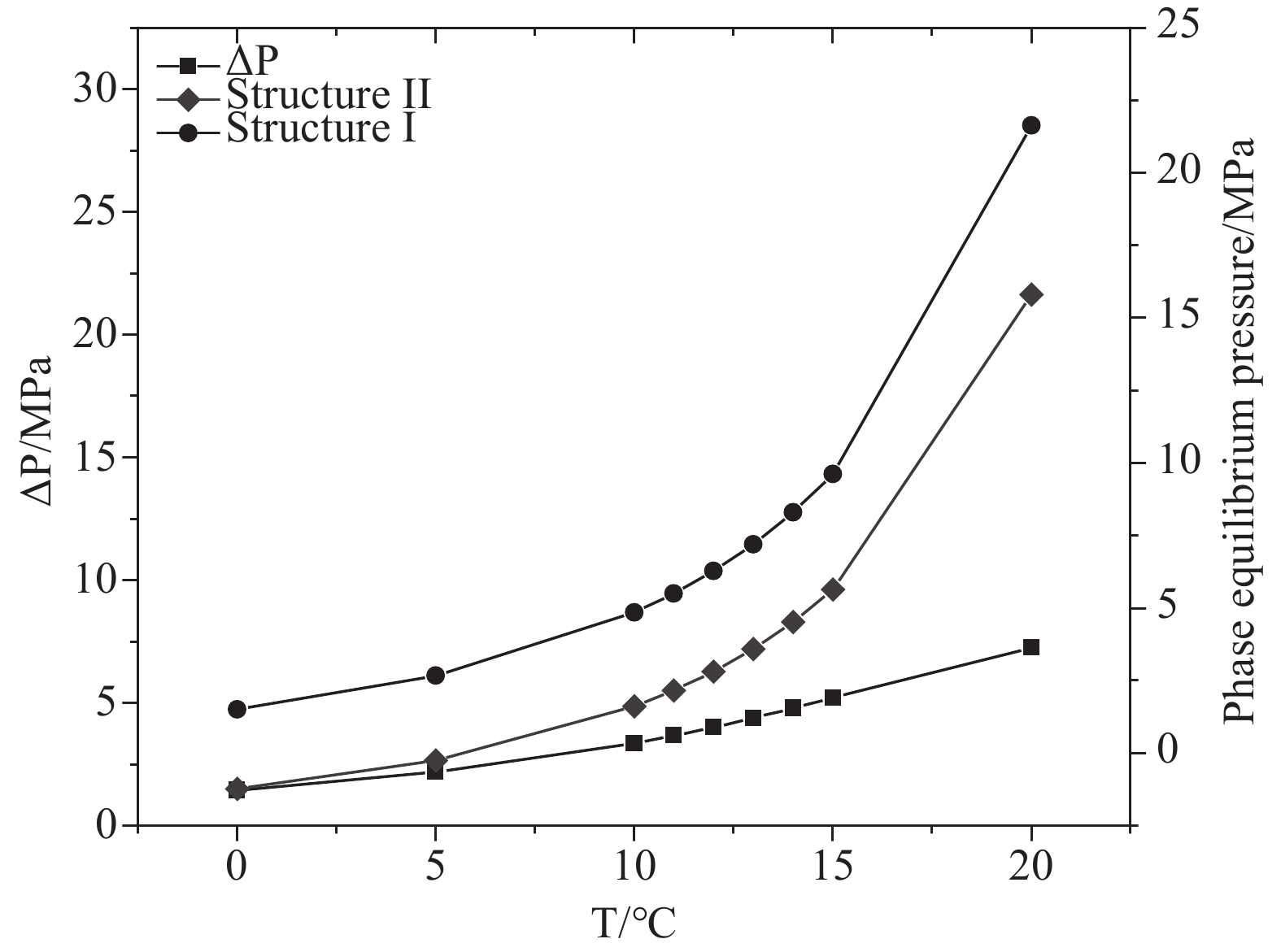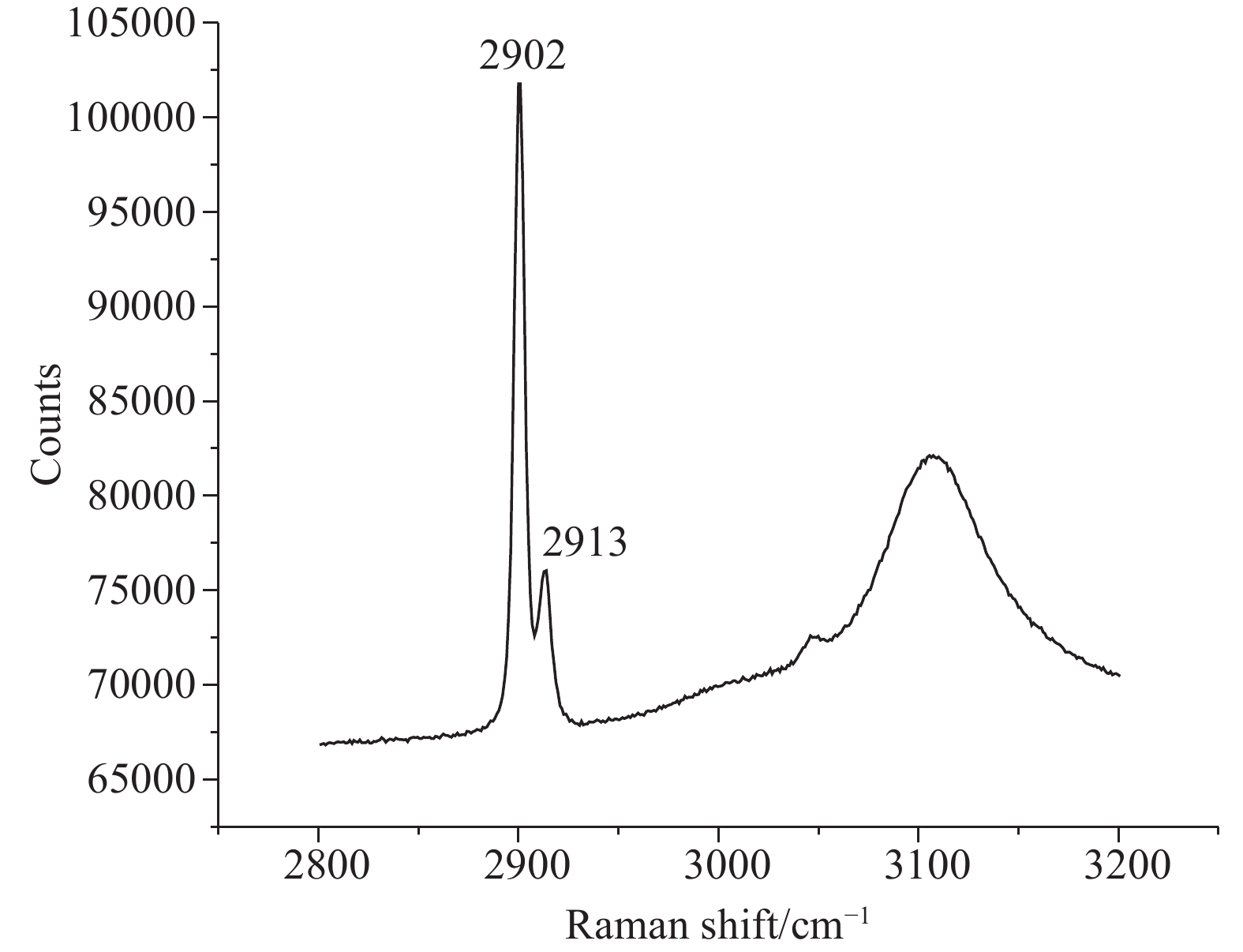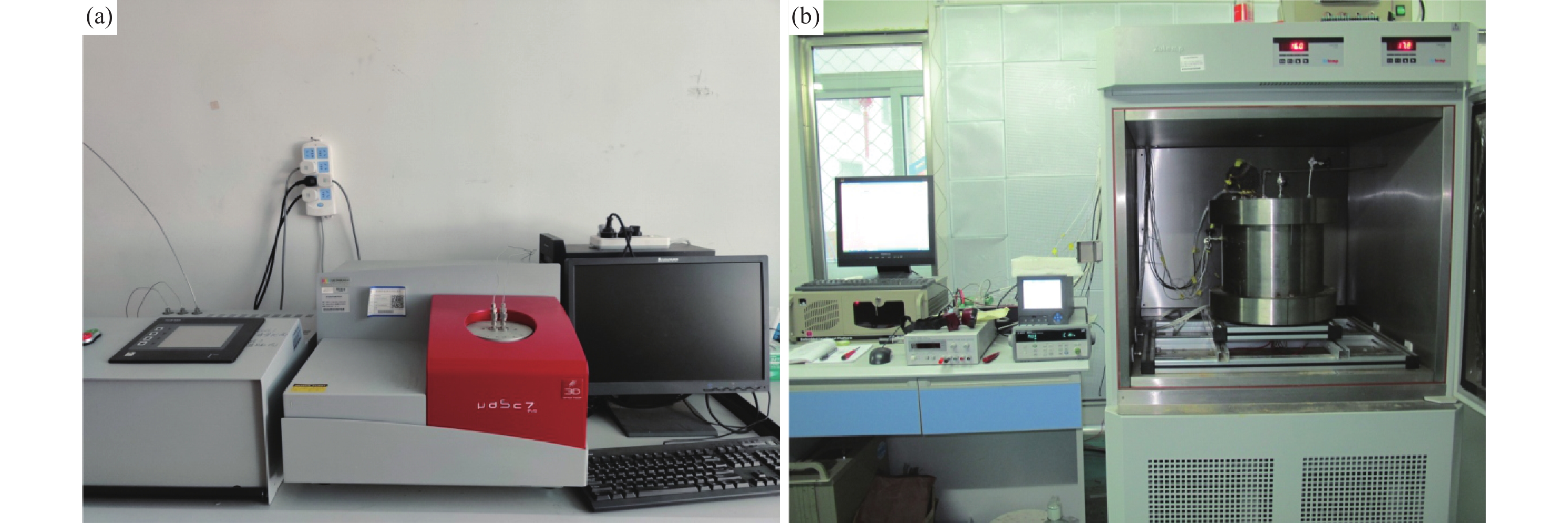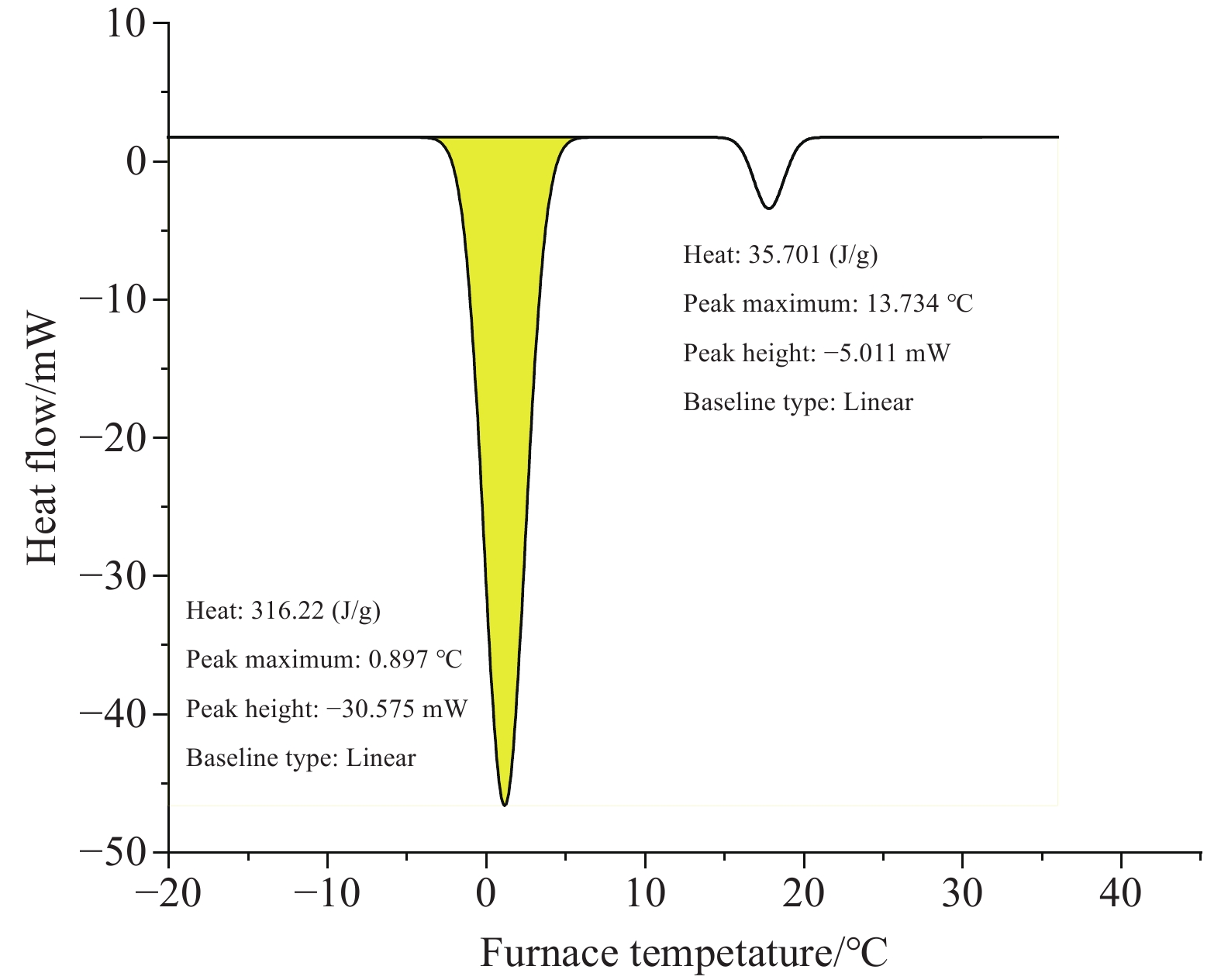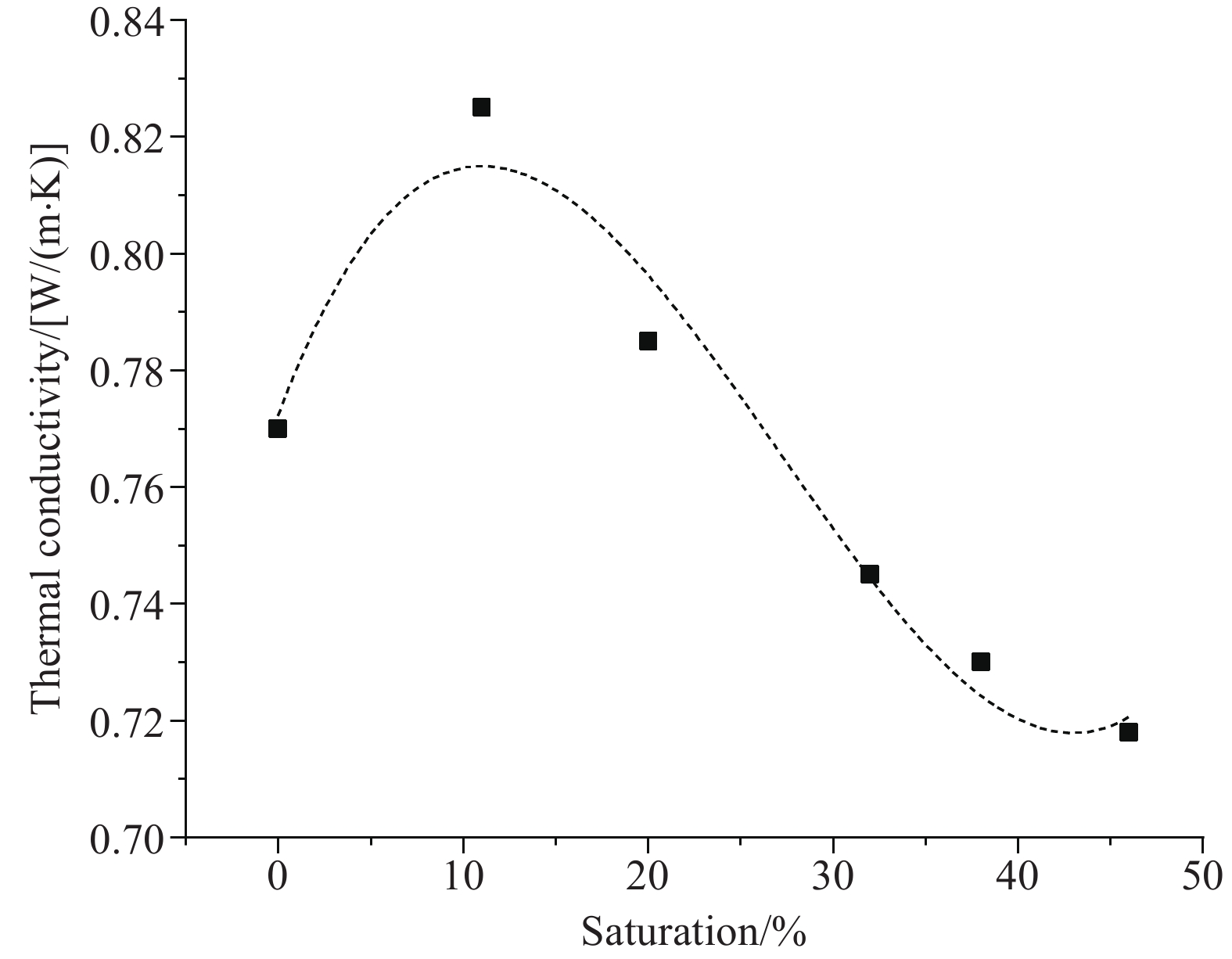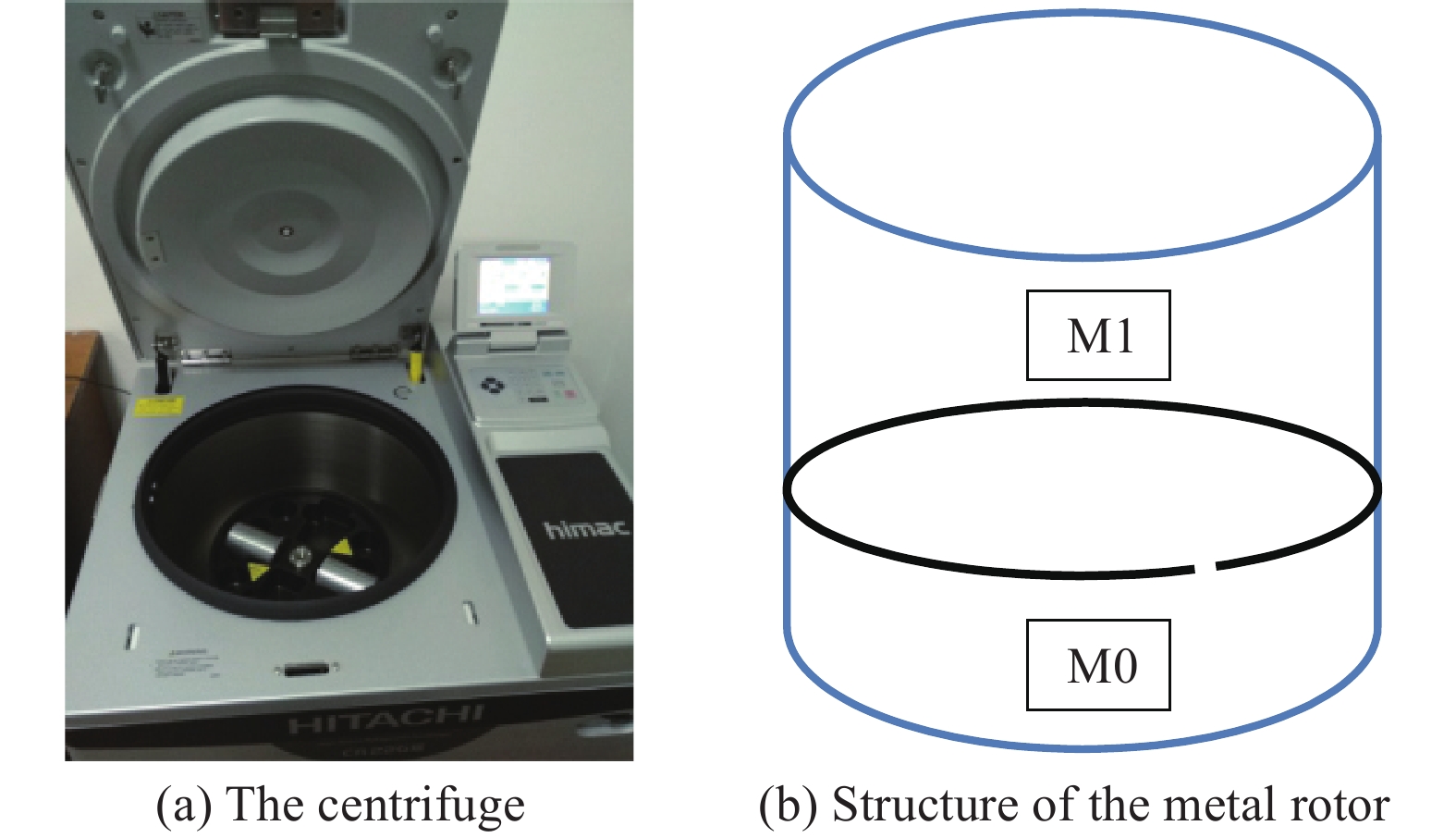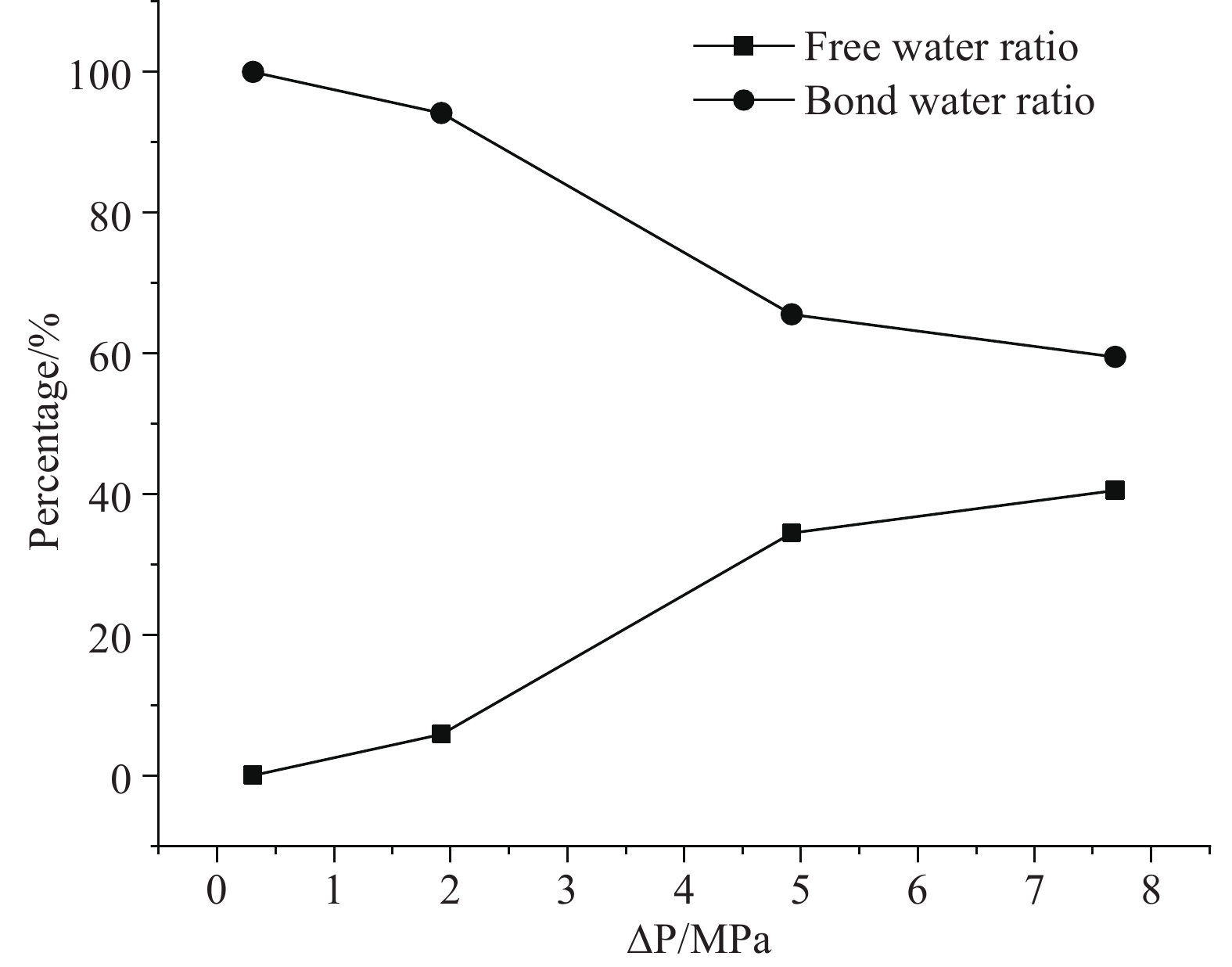| Citation: | Qiang Chen, Gao-wei Hu, Neng-you Wu, Chang-ling Liu, Qing-guo Meng, Cheng-feng Li, Jian-ye Sun, Yan-long Li, 2020. Evaluation of clayed silt properties on the behavior of hydrate production in South China Sea, China Geology, 3, 362-368. doi: 10.31035/cg2020050 |
Evaluation of clayed silt properties on the behavior of hydrate production in South China Sea
-
Abstract
Gas hydrate is one kind of potential energy resources that is buried under deep seafloor or frozen areas. The first trial offshore production from the silty reservoir was conducted in the South China Sea by the China Geological Survey (CGS). During this test, there were many unique characteristics different from the sand reservoir, which was believed to be related to the clayed silt physical properties. In this paper, simulation experiments, facilities analysis, and theoretical calculation were used to confirm the hydrate structure, reservoir thermo-physical property, and bond water movement rule. And the behavior of how they affected production efficiency was analyzed. The results showed that: It was reasonable to use the structure I rather than structure II methane hydrate phase equilibrium data to make the production plan; the dissociation heat absorbed by hydrate was large enough to cause hydrate self-protection or reformation depend on the reservoir thermal transfer and gas supply; clayed silt got better thermal conductivity compared to coarse grain, but poor thermal convection especially with hydrate; clayed silt sediment was easy to bond water, but the irreducible water can be exchanged to free water under high production pressure, and the most obvious pressure range of water increment was 1.9–4.9 MPa.
-

-
References
[1] Anderson BI, Collett TS, Lewis RE, Isabelle D. 2008. Using open hole and cased-hole resistivity logs to monitor gas hydrate dissociation during a thermal test in the Mallik 5L-38 research well, Mackenzie Delta, Canada. Petrophysics, 49(3), 285–294. doi: 10.1007/s00126-008-0177-3 [2] Boswell R, Collett TS. 2006. The gas hydrates resource pyramid. Fire in the Ice, 3, 5–7. [3] Boswell R. 2009. Is gas hydrate energy within reach? Science, 325, 957–958. doi: 10.1126/science.1175074 [4] Chen Q, Diao SB, Sun JY, Liu CL, Ye YG. 2013. Measurement of thermal conductivity and saturation of gas hydrates in sediment by thermal pulse probe-time domain reflection technique. Rock and Mineral Analysis, 32(1), 108–113 (in Chinese with English abstract). doi: CNKI:SUN:YKCS.0.2013-01-024 [5] Chen Q, Liu C, Ye Y. 2014. Thermodynamic and kinetic characteristics of nitrogen hydrates respond to thermo-analytical technique. Asian Journal of Chemistry, 26(17), 5365–5369. doi: 10.14233/ajchem.2014.18112 [6] Chen Q, Ye YG, Liu CL, Diao SB, Zhang J. 2010. Experimental research of methane hydrate phase transformation in porous media. Geoscience, 24(5), 972–978 (in Chinese with English abstract). doi: 10.3969/j.issn.1000-8527.2010.05.019 [7] Collett TS, Lewis RE, Winters WF, Lee MW, Rose KK, Boswell RM. 2011. Downhole well log and core montages from the Mount Elbert gas hydrate stratigraphic test well, Alaska North Slope. Marine and Petroleum Geology, 28(2), 561–577. doi: 10.1016/j.marpetgeo.2010.03.016 [8] Cyranoski D. 2013. Japanese test coaxes fire from ice. Nature, 496(7446), 409. doi: 10.1038/496409a [9] Deng YE, Huang RQ, Ma CJ, Liu CQ. 2004. Gas nonlinear percolation law in low permeable medium with irreducible water. Natural Gas Industry, 11, 88–91 (in Chinese with English abstract). doi: 10.3321/j.issn:1000-0976.2004.11.027 [10] Fang YX, Lu JA, Liang JQ, Kuang ZG, Cao YC, Chen DF. 2019. Numerical studies of gas hydrate evolution time in Shenhu area in the northern South China Sea. China Geology, 2, 49–55. doi: 10.31035/cg2018054 [11] Fujii T, Takayama T, Nakamizu M, Yamamoto K, Lallimore SR, Mwenifumbo J, Wright JF, Kurihara M, Sato A, AI-Jubori A. 2008. Wire-line logging analysis of the 2007 JOGMEC/NRCAN/ AURORA Mallik gas hydrate production test well. In: Proceedings of the 6th International Conference on Gas Hydrates, Vancouver. [12] Guang XJ, Wang MS. 2016. Key production test technologies for offshore natural gas hydrate. Petroleum Drilling Techniques, 44(5), 45–51 (in Chinese with English abstract). doi: 10.11911/syztjs.201605008 [13] He XL, Liu CL, Wang JT, Zhang YY, Meng QG. 2012. Measurement of carbon and hydrogen isotopes of natural gas hydrate-bound gases by gas chromatography-isotope ratio mass spectrometry. Rock and Mineral Analysis, 1, 154–158 (in Chinese with English abstract). doi: 10.3969/j.issn.0254-5357.2012.01.021 [14] Li HB, Guo HK, Li HJ. 2015. Thickness analysis of bound water film in tight reservoir. Natural Gas Geoscience, 26(1), 186–192 (in Chinese with English abstract). doi: 10.11764/j.issn.1672-1926.2015.01.0186 [15] Li JF, Ye JL, Qin XW, Qiu HJ, Wu NY, Lu HL, Xie WW, Lu JA, Peng F, Xu ZQ, Lu C, Kuang ZG, Wei JG, Liang QY, Lu HF, Kou BB. 2018. The first offshore natural gas hydrate production test in South China Sea. China Geology, 1, 5–16. doi: 10.31035/cg2018003 [16] Li YL, Liu LL, Liu CL, Sun JY, Ye YG, Chen Q. 2016. Sanding prediction and sand-control technology in hydrate exploitation: A review and discussion. Marine Geology Letters, 32(7), 36–43 (in Chinese with English abstract). doi: 10.16028/j.1009-2722.2016.07005 [17] Liang JQ, Deng W, Lu JA, Kuang ZG, He YL, Zhang W, Gong YH, Liang J, Meng MM. 2020. A fast identification method based on the typical geophysical differences between submarine shallow carbonates and hydrate bearing sediments in the northern South China Sea. China Geology, 3, 16–27. doi: 10.31035/cg2020021 [18] Liang JQ, Wang HB, Su X, Fu SY, Wang LF, Guo YQ, Chen F, Shang JJ. 2014. Natural gas hydrate formation conditions and the associated controlling factors in the northern slope of the South China Sea. Natural Gas Industry, 34(7), 128–135 (in Chinese with English abstract). doi: 10.3787/j.issn.1000-0976.2014.07.022 [19] Liu CL, Ye YG, Sun SC, Chen Q, Meng QG, Hu GW. 2013. Experimental study on P-T stability conditions and influencing factors of natural gas hydrate in different systems. Science China Earth Sciences, 3, 406–413. doi: 10.1007/s11430-012-4564-3 [20] Lu ZQ, He JX, Jin CS, Liu H, Zhu YH, Yang SX, Zhang GX, Huang X, Wang PK. 2013. A study of modeling the effects of gas sources on gas hydrate formation in the northern slope of South China Sea. Chinese Journal of Geophysics, 56(1), 188–194 (in Chinese with English abstract). doi: 10.6038/cjg20130119 [21] Makogon YF, Omelchenko RY. 2013. Commercial gas production from Messoyakha deposit in hydrate conditions. Natural Gas Science Engeering, 11, 1–6. doi: 10.1016/j.jngse.2012.08.002 [22] Meng QG, Liu CL, Ye YG, Xia N. 2010. In situ Raman spectroscopic observation on methane hydrate dissociation. Natural Gas Industry, 6, 117–120 (in Chinese with English abstract). doi: 10.3787/j.issn.1000-0976.2010.06.032 [23] Milkov AV. 2004. Global estimates of hydrate-bound gas in marine sediments: How much is really out there. Earth-Science Reviews, 66(s3/4), 183–197. doi: 10.1016/j.earscirev.2003.11.002 [24] Moridis GJ, Collett TS, Dallimore SR, Satoh T, Hancock S, Weatherill B. 2004. Numerical studies of gas production from several CH4 hydrate zones at the Mallik site, Mackenzie Delta, Canada. Journal of Petroleum Science and Engineering, 43, 219–238. doi: 10.1016/j.petrol.2004.02.015 [25] Moridis GJ, Seol Y, Kaneafsey TJ. 2005. Studies of reaction kinetics of methane hydrate dissocation in porous media. Norway, Proceedings of the Fifth International Conference on Gas Hydrates, Trondheim, 13–16. [26] Moridis GJ, Silpngarmlert S, Reagan MT. 2011. Gas production from a cold, stratigraphically-bounded gas hydrate deposit at the Mount Elbert Gas Hydrate Stratigraphic Test Well, Alaska North Slope: Implications of uncertainties. Marine and Petroleum Geology, 28(2), 517–534. doi: 10.1016/j.marpetgeo.2010.01.005 [27] Qin XW, Lu JA, Lu HL, Qiu HJ, Liang JQ, Kang DJ, Zhan LS, Lu HF, Kuang ZG. 2020. Coexistence of natural gas hydrate, free gas and water in the gas hydrate system in the Shenhu Area, South China Sea. China Geology, 3, 210–220. doi: 10.31035/cg2020038 [28] Rose K, Boswell R, Collett T. 2011. Mount elbert gas hydrate stratigraphic test well, Alaska North Slope: Coring operations, core sedimentology, and lithostratigraphy. Marine and Petroleum Geology, 28, 311–331. doi: 10.1016/j.marpetgeo.2010.02.001 [29] Shi YH, Liang QY, Yang JP, Yuan QM, Wu XM, Kong L. 2019. Stability analysis of submarine slopes in the area of the test production of gas hydrate in the South China Sea. China Geology, 2, 276–286. doi: 10.31035/cg2018122 [30] Su M, Yang R, Wu NY, Wang HB, Liang JQ, Sha ZB, Cong XR, Qiao SH. 2014. Structural characteristics in the Shenhu Area, northern continental slope of South China Sea, and their influences on gas hydrate. Acta Geologica Sinica, 88(3), 318–326 (in Chinese with English abstract). doi: 10.3969/j.issn.0001-5717.2014.03.002 [31] Sun JC, Yang ZM, Tang LG, Yan J. 2011. Study on distribution law of irreducible water andgas saturation of tight sandstone gas reservoir. Journal of Shenzhen University (Science & Engineering), 28(5), 377–383 (in Chinese with English abstract). doi: 10.3969/j.issn.1000-2618.2011.05.001 [32] Takahashi H, Yonezawa T, Fercho E. 2003. Operation overview of the 2002 Mallik gas hydrate production research well program at Mackenzie delta in the Canadian Arctic. Houston, Texas, Offshore Technology Conference 2003. [33] Uddin M, Wright F, Dallimore S, Coombe D. 2014. Gas hydrate dissociations in Mallik hydrate bearing zones A, B, and C by depressurization: Effect of salinity and hydration number in hydrate dissociation. Journal of Natural Gas Science & Engineering, 21, 40–63. doi: 10.1016/j.jngse.2014.07.027 [34] Wang L, Gu LJ, Lu HL. 2020. Sediment permeability change on natural gas hydrate dissociation induced by depressurization. China Geology, 3, 221–229. doi: 10.31035/cg2020039 [35] Wu NY, Huang L, Su Z, Yang SX, Wang HB, Liang JQ, Lu HL. 2013. A study of geological evaluation indicators for the exploitation potential of marine natural gas hydrates: Theory and methodology. Natural Gas Industry, 33(7), 11–17 (in Chinese with English abstract). doi: 10.3787/j.issn.1000-0976.2013.07.002 [36] Wu NY, Liu CL, Hao XL. 2018. Experimental simulations and methods for natural gas hydrate analysis in China. China Geology, 1, 61–71. doi: 10.31035/cg2018008 [37] Xu CL, Sun ZL, Geng W, Zhang XR, Cao H, Liu LP, Zhang XL, Zhai B. 2018. Thermal recovery method of submarine gas hydrate based on a thermoelectric generator. China Geology, 1, 568–569. doi: 10.31035/cg2018068 [38] Yamamoto K, Dallimore SR. 2008. Overview of the 2006–2008 JOGMEC/NRCan/Aurora Mallik gas hydrate production test program. Washington, DC, AGU Fall Meeting, 2008. [39] Ye JL, Qin XW, Qiu HJ, Liang QY, Dong YF, Wei JG, Lu HL, Lu JA, Shi YH, Zhong C, Xia Z. 2018. Preliminary results of environmental monitoring of the natural gas hydrate production test in the South China Sea. China Geology, 1, 202–209. doi: 10.31035/cg2018029 [40] Ye JL, Qin XW, Xie WW, Lu HL, Ma BJ, Qiu HJ, Liang JQ, Lu JA, Kuang ZG, Lu C, Liang QY, Wei SP, Yu YJ, Liu CS, Li B, Shen KX, Shi HX, Lu QP, Li J, Kou BB, Song G, Li B, Zhang HE, Lu HF, Ma C, Dong YF, Bian H. 2020. The second natural gas hydrate production test in the South China Sea. China Geology, 3, 197–209. doi: 10.31035/cg2020043 [41] Zhang GX, Liang JQ, Lu JA, Yang SX, Zhang M, Su X, Xu HN, Fu SY, Kuang ZG. 2014. Characteristics of natural gas hydrate reservoirs on the northeastern slope of the South China Sea. Natural Gas Industry, 34(11), 1–10 (in Chinese with English abstract). doi: 10.3787/j.issn.1000-0976.2014.11.001 [42] Zhang RW, Lu JA, Wen PF, Kuang ZG, Zhang BJ, Xue H, Xu YX, Chen X. 2018. Distribution of gas hydrate reservoir in the first production test region of the Shenhu area, South China Sea. China Geology, 1, 493–504. doi: 10.31035/cg2018049 [43] Zhang W, Shao MJ, Wang MH, Tian QN. 2017. First offshore methane hydrate production test in the world: From site selection to implementation. China Mining Magazine, 26(2), 143–151 (in Chinese with English abstract). doi: 10.3969/j.issn.1004-4051.2017.02.026 [44] Zhu CQ, Zhang MS, Liu XL, Wang ZH, Shen ZC, Zhang BW, Zhang XT, Jia YG. 2017. Gas hydrates: Production, geohazards and monitoring. Journal of Catastrophology, 32(3), 51–56 (in Chinese with English abstract). doi: 10.3969/j.issn.1000-811X.2017.03.010 -
Access History

-
Figure 1.
The measurement apparatus for structure and component of gas hydrate. a–microscopic Raman spectrometer; b–gas chromatograph.
-
Figure 2.
The structure I/II gas hydrate phase equilibrium data.
-
Figure 3.
Raman spectrum of gas hydrate from the Shenhu area, South China Sea.
-
Figure 4.
Apparatus of hydrate dissociation and thermal conductivity measurement. a–high-pressure differential scanning calorimetry; b–hydrate thermal-physical simulation apparatus.
-
Figure 5.
HP DSC heat flow curve of methane hydrate dissociation.
-
Figure 6.
The relationship between the thermal conductivity and hydrate saturation of Shenhu samples.
-
Figure 7.
The metal rotor of the centrifuge.
-
Figure 8.
Free water and bound water variation trend under different pressure.



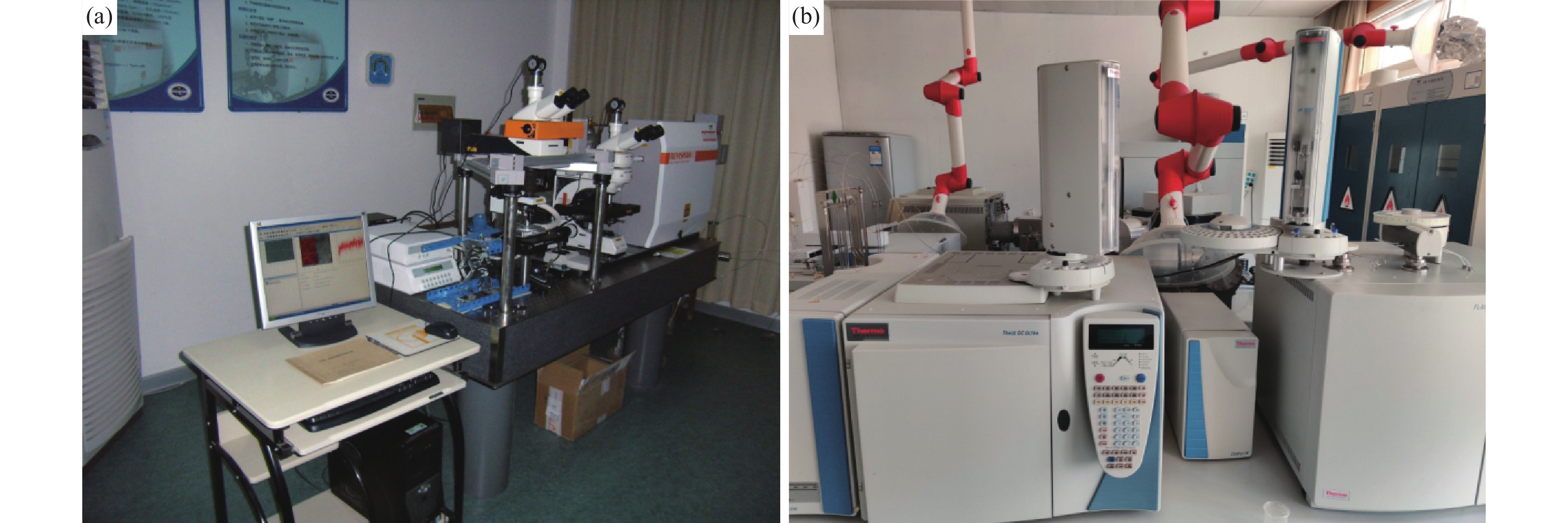

 DownLoad:
DownLoad:
